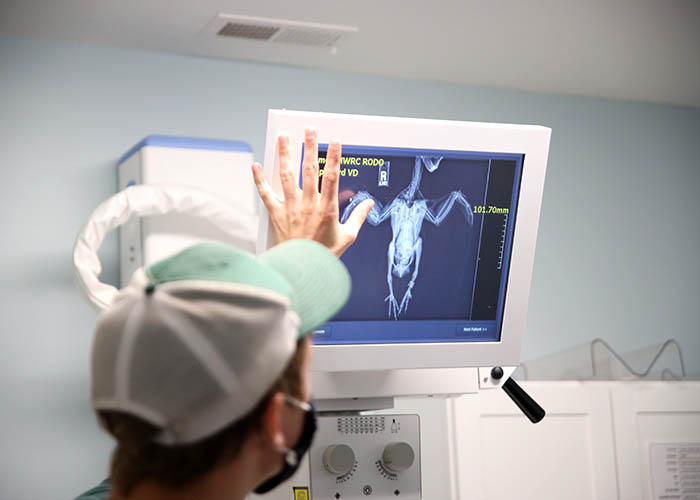Pre-Veterinary Medicine
The pre-veterinary medicine major will prepare you for admission to professional veterinary programs through a broad variety of thorough and rigorous coursework. You will experience courses in diverse topics such as molecular biology, genetics, wildlife biology, chemistry and physics. Additionally, you will work alongside experienced veterinary staff at the Dan and Dianne May Wildlife Rehabilitation Center. You will care for sick and injured wildlife while gaining valuable experience in a clinical setting. Admission requirements for doctor of veterinary medicine (DVM) programs vary greatly, however, you can rest assured knowing you will be prepared for entrance into most veterinary schools in the Southeastern U.S.


What You’ll Study
The pre-veterinary medicine program will not only provide a variety of knowledge and skills that will develop you into an exemplary veterinary student, but will also ensure you graduate with the minimum requirements for entry into veterinary school. Beyond the core coursework, you will take courses in three major areas:
Clinical Experiences
Clinical experience courses focus on the day-to-day care of wildlife at the May Wildlife Rehabilitation Center on our campus. You will work with veterinary staff and volunteers to diagnose and treat injured wildlife in preparation for release back into the wild.
Molecular Sciences
Coursework in the molecular sciences is designed to ensure that students graduate with a solid foundation of knowledge in the biological sciences as it relates to normal physiology and diseased states. Histology—the study of the microscopic structure of tissues—developmental biology, and cell biology courses are available to you in order to meet this requirement.
Organismal Sciences
The organismal science courses will introduce you into the ecology, cladistics, evolutionary history, and behavior of organisms in the wild. Our faculty offers courses in herpetology (amphibians and reptiles), mammalogy (mammals), ornithology (birds), and animal behavior.
Beyond the Classroom
The program in pre-veterinary medicine allows for tremendous experiential learning outside of lectures. You are encouraged to seek out internships and volunteer opportunities at the May Wildlife Rehabilitation Center, local veterinary clinics, and other wildlife sanctuaries in the area. Additionally, our programs in the natural sciences sponsor several trips abroad to learn about animal care in different countries. For example, a biannual trip to New Zealand allows students to learn more about the care of the wildlife native to that country.
Lees-McRae hosts events throughout the year to help you understand the veterinary school application process. Alumni currently attending veterinary school, practicing veterinarians, and career services often host Q&A sessions and offer advice to current students. Lees-McRae also hosts an annual wildlife medicine symposium to bring members of the local veterinary medicine community to our campus to foster relationships between students and industry professionals.
These week-long sessions introduce high school students to the many fields of study available for those who love wildlife biology and the natural world. Students will participate in hands-on research experiences at the Elk Valley Preserve and Field Station, meet the ambassadors at the May Wildlife Rehabilitation Center, and go on educational field trips locations like Grandfather Mountain and the Greensboro Science Center.
Similar Majors
Popular Minors
After Graduation
Designed specifically for students who wish to attend veterinary school in pursuit of a doctor of veterinary medicine degree, the program also meets many of the requirements for other professional programs, such as medical, physician’s assistant, pharmacy, dental, physical therapy, occupational therapy schools and other natural science programs with minimal additional coursework.
Lees-McRae has an articulation agreement with Ross University School of Veterinary Medicine, guaranteeing interviews for any Lees-McRae student who meets specific academic criteria upon graduation.
The pre-veterinary medicine major prepares you for careers like the following:
Career information is provided through Vault and O'Net. Current Lees-McRae students can see the full results on Vault using their student email and password.
Frequently Asked Questions
Do you still have questions about Pre-Veterinary Medicine? Hear a panel of alumni answer the most common questions potential students have about the program.
Meet the Faculty
Sam Young. DVM
Wildlife Veterinarian and Program Coordinator for Pre-Veterinary Medicine, Senior Veterinarian and Assistant Professor of Wildlife Biology
Miranda Torkelson, DVM
Program Coordinator for Wildlife Rehabilitation, Veterinarian and Assistant Professor of Wildlife Biology
